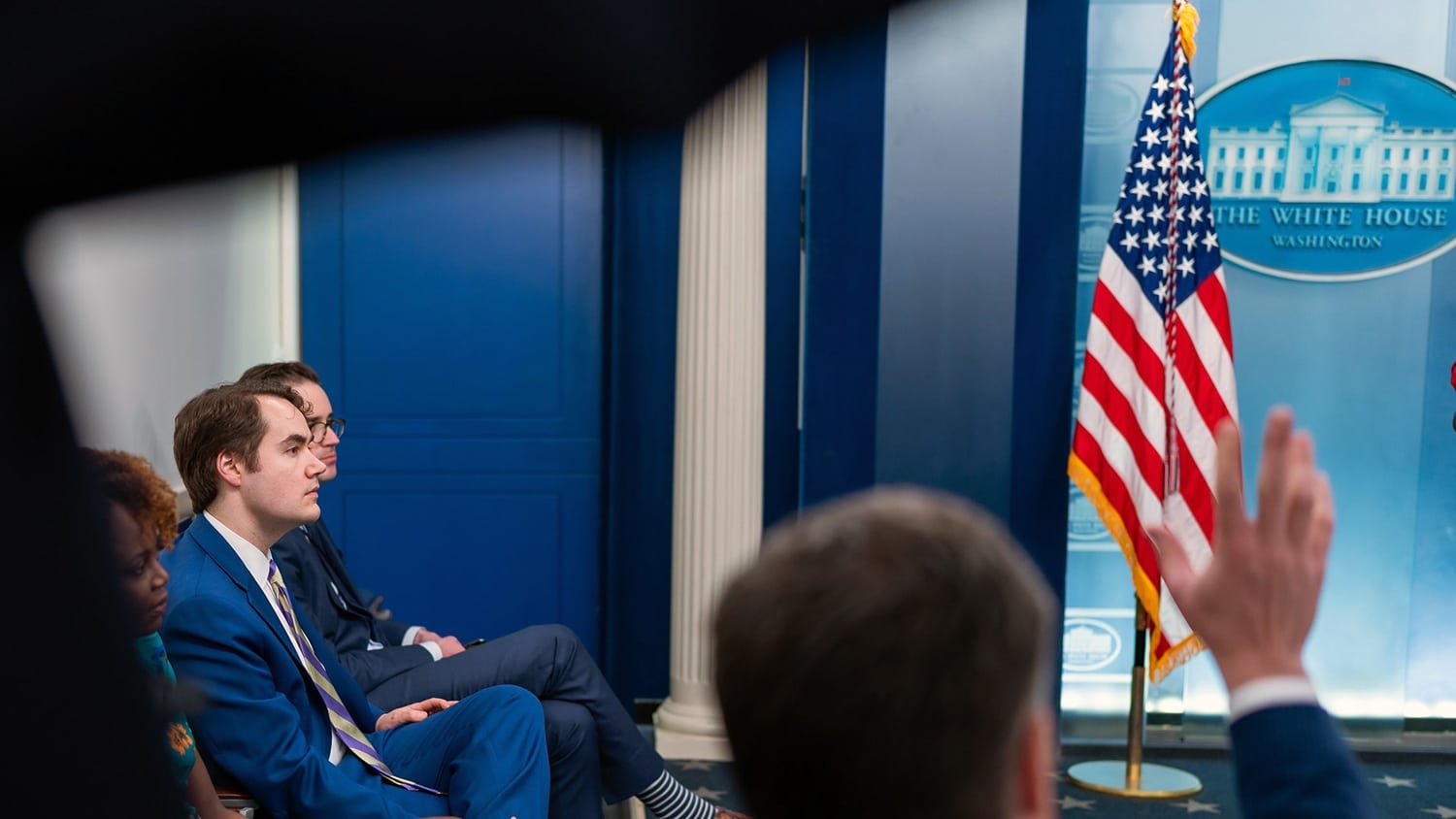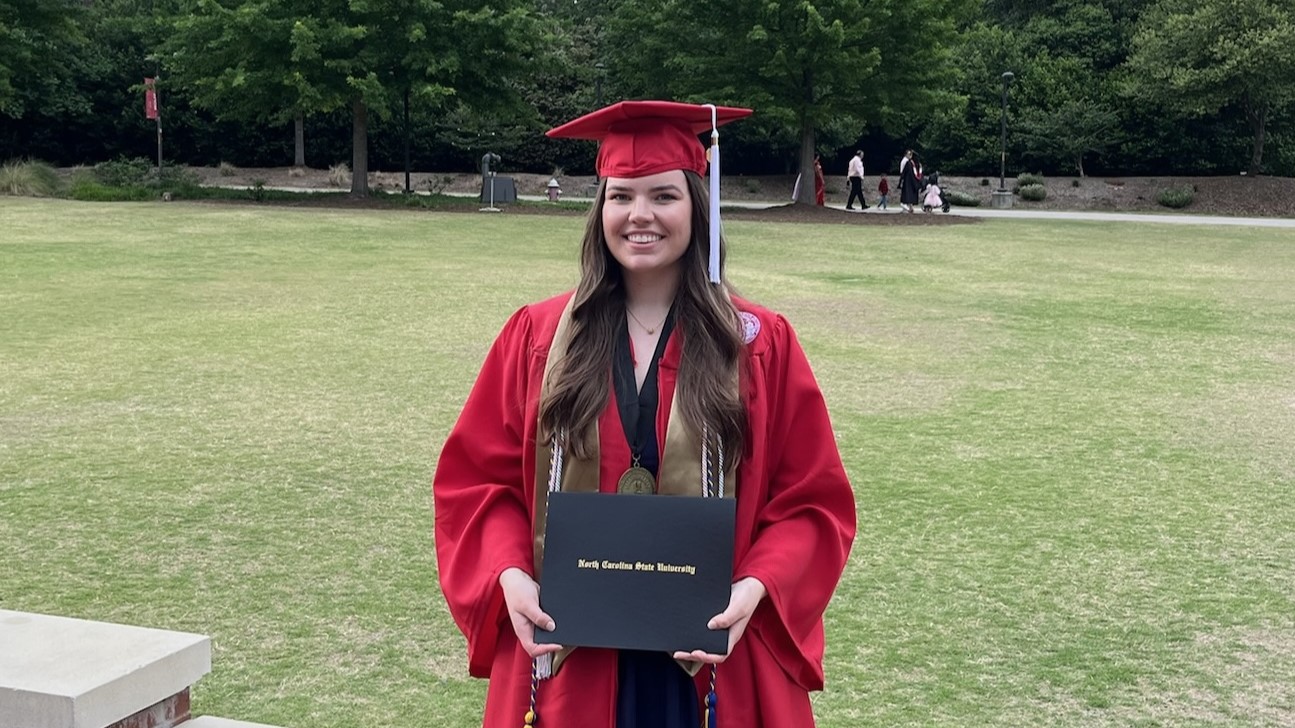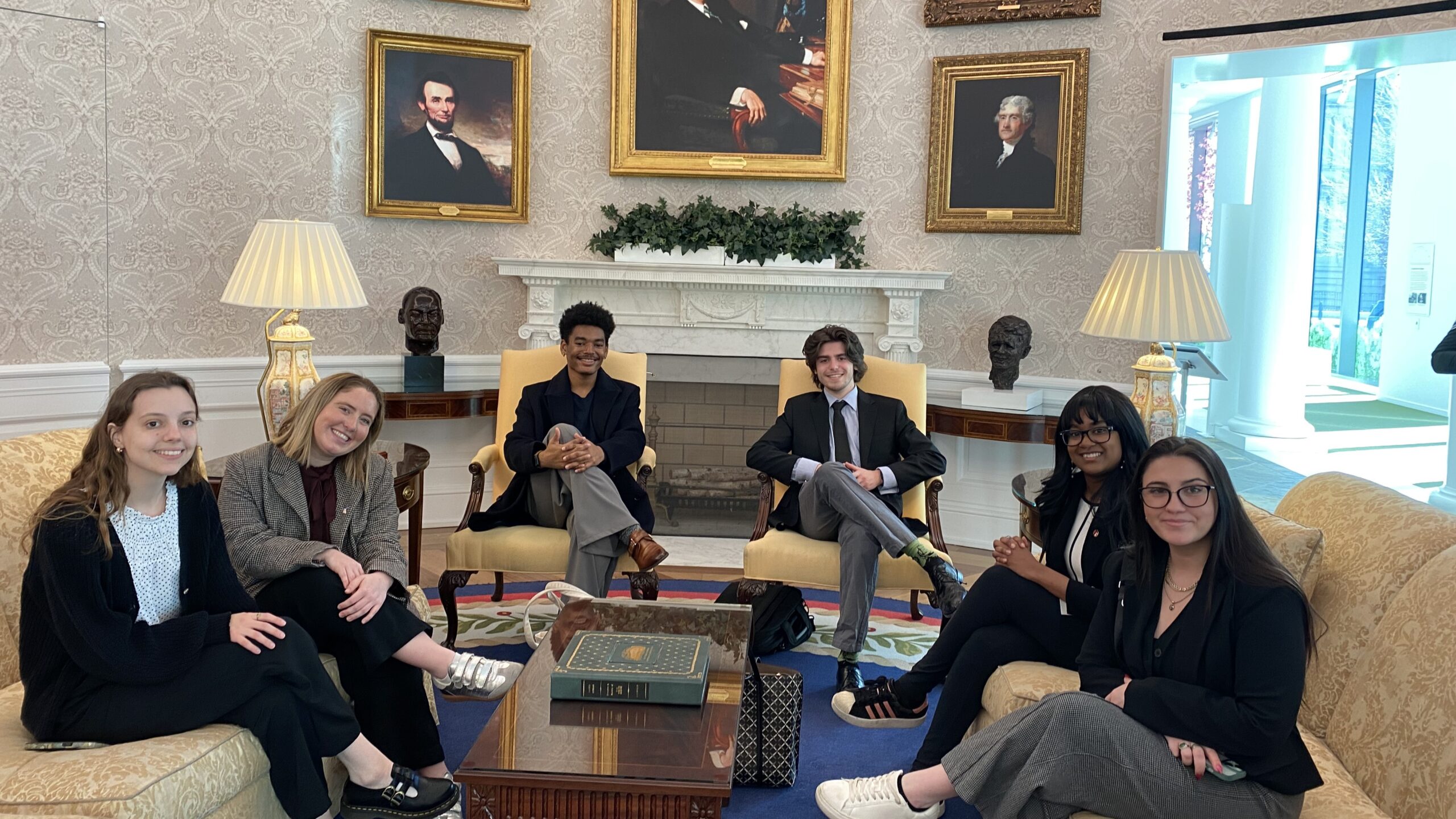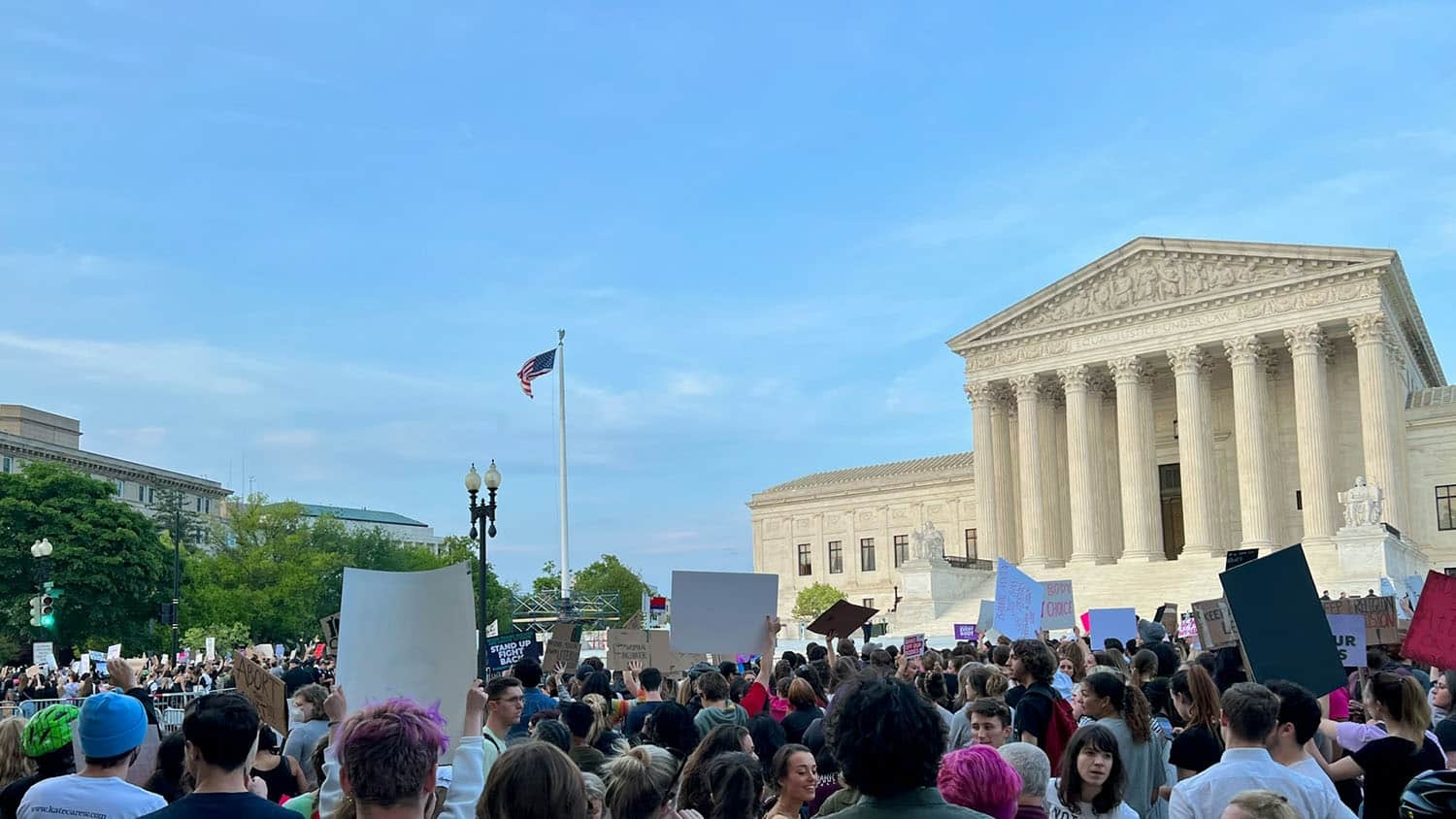Andrew Bates was willing and ready to drop out of NC State so he could live the dream of anyone who has ever volunteered for a political campaign: a full-time job in the White House.
Before Bates could drop out, however, he received a crucial piece of advice from White House Chief Communications Officer Dan Pfeiffer, a longtime adviser to President-elect Barack Obama: “You gotta get your degree. It’s important. We’ll find something for you when you graduate.”
Pfeiffer was necessarily vague about what that “something” might be; but sure enough, shortly after Bates received his Bachelor of Arts in political science in December 2009, he was offered the opportunity to return to the White House as a media monitor, a low-level position in the communications office.
All jobs in national politics are, by nature, temporary, based on the outcome of an election, term limits or a person’s burnout rate. Bates, however, has been in various positions within the Democratic Party structure for the last decade and a half, and he worked his way back into the White House two years ago as an important member of President Joe Biden’s press and communications team.
Bates has a Wolfpack hat tucked neatly on his West Wing desk, a pair of red-and-white socks that he wears on occasion and an NC State tie he wore to the office as the White House prepared for Biden’s second State of the Union address in February.
Yes, he is politically active and has no shortage of opinions on current, former and future presidents. (Check those out on Twitter at @AndrewBatesNC.)
That, however, is not what his story is about.
A Wandering Path for a Direct Destination
Bates grew up outside Winston-Salem and in 2005 graduated from Reynolds High School, named after the city’s biggest benefactor, tobacco tycoon R.J. Reynolds. In high school, he was active in school theatrical productions, hoping that would be his course of study when he enrolled at UNC Greensboro later that year.
After just one semester, he felt a stronger pull toward politics than to the stage. He transferred to NC State to begin studying his second passion, knowing a school located a few miles west of the state capital would be professionally beneficial.
Shortly after arriving in 2006, he earned an internship in five-term U.S. Representative Brad Miller’s local office and kicked off a career in professional politics. The next year, he volunteered for the Obama campaign and also applied for an internship in the campaign’s Chicago press office. That’s where he was introduced to Obama communications director and former NC State soccer player Robert Gibbs, after someone discovered their shared connection to NC State.
Gibbs was constantly on the road with the campaign so the two didn’t spend much time together, but in May 2008, on the night Obama secured the Democratic nomination for president, Bates was at a campaign rally in Reynolds Coliseum with Gibbs and Obama — a night he will never forget.
Bates was not in school at the time and stayed with the campaign as a media monitor until Election Day 2008. He decompressed from grueling hours on the trail by going back to his apartment and watching episodes of — what else? — The West Wing.
Still, he needed to make a decision about returning to classes for the spring 2009 semester. He only needed two more semesters for his bachelor’s degree, which he completed sandwiched with a summer internship at the White House. He completed his degree requirements in December of that year.
Bates has been a media monitor, a press assistant and a communications researcher, all with specific duties on the communication team. He got more political experience as the deputy press secretary and then the press secretary for the U.S. trade representative in 2013, then joined the Hilary Clinton presidential campaign in 2016.
He was heavily involved in the Clinton campaign as its North Carolina communications director, including the planning for Michelle Obama’s speech in Reynolds Coliseum and Clinton’s appearance in Reynolds the night before Election Day 2016.
Bates also took actor Will Ferrell on a tour of the North Carolina State Fair with Gov. Roy Cooper and participated in multiple events throughout the campaign across what became an important swing state in the election.
During that time got to know former two-time, two-term Gov. Jim Hunt, North Carolina’s most prominent politician and NC State’s strongest advocate.
“He was our most valuable surrogate in North Carolina,” Bates says of Gov. Hunt. “I still remember the day he came to our campaign office to do TV interviews and was glad to see a football with an NC State logo on it at my desk.
“I loved seeing him introduce Michelle Obama at Reynolds Coliseum.”
He continued with a Democratic super PAC during the Donald Trump presidency, working on multiple U.S. House races, but he quickly signed up for the Joe Biden campaign in 2019 and was spokesman for the Biden-Harris transition team.
For the primary and general election, he was the campaign’s rapid response director, responsible for pivoting messages and policy responses in one of the most tumultuous campaigns in American political history.
“An important role of the communications staff is to spread the candidate’s or official’s message and to ensure voters know the contrast between what we stand for and what others stand for,” he says. “And, most importantly, who’s fighting for whom.”
Bates is now one of the three deputy press secretaries in the White House press office, working directly under Press Secretary Karine Jean-Pierre.
His daily work routine — which typically begins around 5:30 a.m. — includes a variety of duties that directly impact the White House’s messaging for a news cycle that never really ends.
He’ll be forever grateful to Pfeiffer for the professional guidance to stay in school and to former White House Press Secretary Jen Psaki, who asked Bates to work on her communication team for cabinet confirmations after working with him previously when he was a press assistant.
“[Pfeiffer] just reinforced that I really needed to finish school, that the degree was important,” Bates says. “There are a lot of people in this line of work who don’t have one. He said they would try to bring me back, and they followed through.
“I’m glad I did it the way he encouraged.”
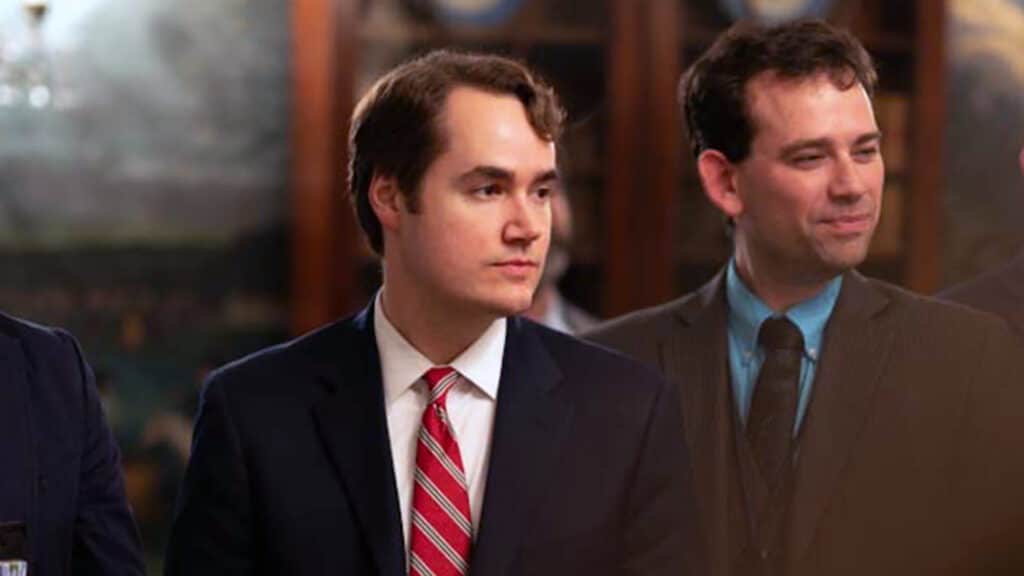
Political Prep
NC State alumni have successfully run for office through the years, notably resulting in four governors (O. Max Gardner, Hunt and father-son combination W. Kerr Scott and Robert Scott) and two U.S. senators (Kerr Scott and John Edwards).
A fair share of consultants and advisory staff to prominent political leaders have also been alums, like Gibbs, who led Obama’s communication team for the first three years of the president’s first term.
Why does a STEM school with a history rooted in agriculture and engineering turn out successful political operatives, consultants and communicators on both sides of the aisle?
“I think being in the state capital of a state with dynamic, closely contested politics has a lot to do with it, not to mention vibrant city and county politics,” says political science professor Steven Greene, who was Bates’ departmental advisor at NC State. “What this means is that our students have all sorts of opportunities to get involved in real-world politics.
“Furthermore, we have faculty and staff on ongoing programs and internships that have a long history and tradition of helping students make connections.”
Bates gives a strong endorsement for Greene and his colleagues in the department, like political science professor Andrew Taylor, for an even-handed, comprehensive approach to the theater of politics.
“State combines a top-flight department with the exceptional resources available for understanding practical politics in Raleigh,” says the 36-year-old Bates. “The faculty are thoughtful, sharp and invested in their students’ development. Dr. Greene was incredibly helpful in making sure we were all getting the big-picture concepts from his classes and about getting on the right track professionally.”
It doesn’t hurt, of course, to be in a seat of statewide political power. One of Bates’ favorite classes was The Art and Science of Politics, a one-semester seminar jointly taught by Jerry Meek, the chair of the North Carolina Democratic Party, and Tom Fetzer, former Republican mayor of Raleigh and a political consultant.
It taught him to know the opposition as well as he knows his own campaign or administration.
“They stressed to us that understanding the substance of policy is critical to political success,” he says. “If you don’t also have a grounding in the way campaigns and relations between elected leaders and constituents work, your knowledge will be fatally incomplete.”
Duty Calls
In an after-hours interview, Bates was awfully time-generous for a person who is on practically 24-hour call and who happens to be a newlywed. He was married last year to Megan Bates-Apper, a senior spokesperson for the U.S. Treasury.
In the middle of explaining how he first became interested in politics at the age of 13 during the heavily contested presidential race of 2000, he abruptly stopped midsentence.
“I am very sorry,” he said, “I have to go.”
The next morning a national newspaper posted a policy story that needed a comment and confirmation — not to mention a gentle correction from a White House spokesman.
And that ended another day’s work for Bates in the West Wing.
This post was originally published in NC State News.
